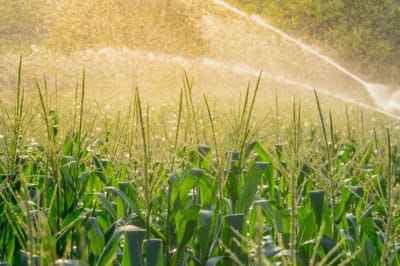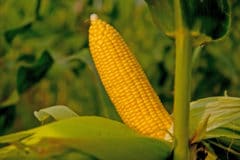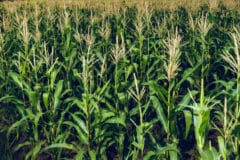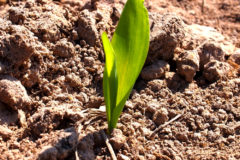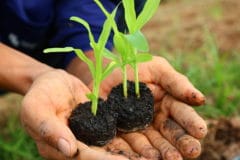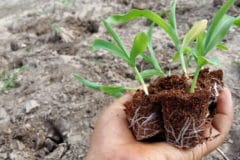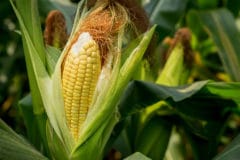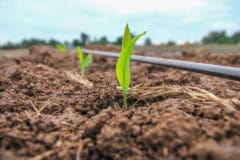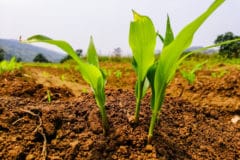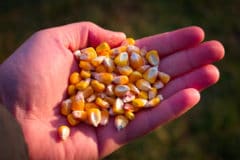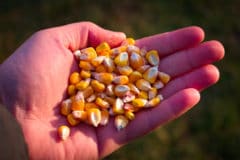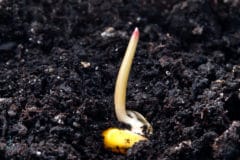Watering Seeds and Seedlings
After you have prepared the soil for planting corn and sown your corn seeds, you need to saturate the ground with water. The soil should remain moist at all times until the corn seeds germinate. If the weather is scorching, plan on watering twice a day until germination.
Once the seeds have sprouted and you can see the corn seedlings, you should continue to water regularly to ensure the small corn plants have enough water to establish a secure root system. Plan on watering daily for several weeks.
Watering Young Corn Plants
Once your corn plants have reached about knee high, you can safely cut down the watering to once a week. If you can somehow measure how much water you use, the accepted norm is 1.5 inches (4 cm) of water per week.
If you cannot measure your water output, a good rule of thumb is to water when the top inch of soil is dry. If you stick your finger into the earth and it feels dry, go ahead and water. The ground should be saturated, but not running off.
Tip: Use a soaker hose or ground-level sprinkler to water your corn. You will lose less water to evaporation.
Watering Mature Plants
As in the other growing stages of corn, mature corn plants need a lot of water. After all, the kernels of corn need to have adequate water to fill out and ripen.
- It is more important at this stage to water your corn plants from the bottom.
- If you water from above, you can strip the pollen from the tassels, which results in reduced pollination.
When to Stop Watering
Although it may seem like an obvious answer, you stop watering once your harvest is over. However, this is only true when you are growing sweet corn that has a short life. For field corn or popcorn, however, the time frame is slightly different.
If you are growing field or popcorn, you should continue to water the crop for about two weeks after you dent the corn. Denting means that if you try to pierce a kernel with your nail, it will not ooze liquid. If you continue to water for a short time after, you are more likely to have a higher yield of useable kernels.
As with most garden plants, how much you actually water depends on your climate and how high your summer temperatures are. As long as you water whenever the soil feels dry, you should have great success.
